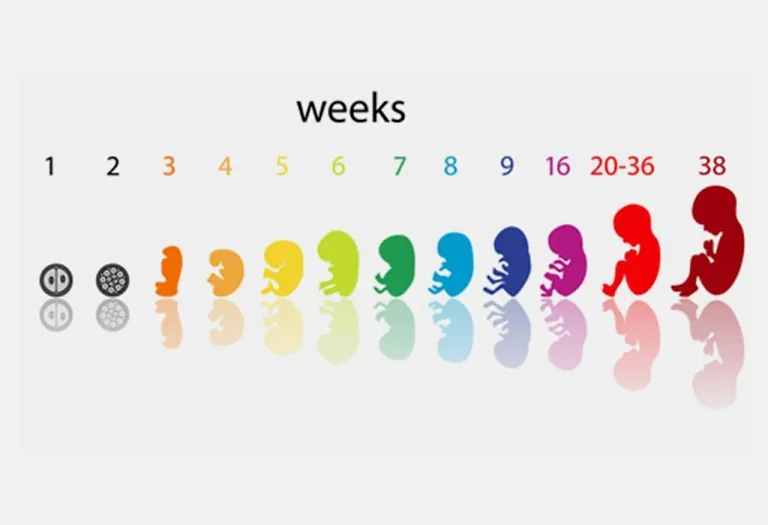Does Taking Progesterone During Pregnancy Help Prevent a Miscarriage?

- Is Low Progesterone During Pregnancy Associated With Miscarriage?
- Can Progesterone Prevent Miscarriage?
- When to Start Progesterone to Prevent Miscarriage?
- When Is Progesterone Treatment Recommended?
- How Is Progesterone Given?
- Side Effects of Taking Progesterone to Prevent a Miscarriage
- Are There Any Serious Reactions?
- FAQs
A miscarriage is a traumatic experience for every mother-to-be. A miscarriage can stop you from experiencing and enjoying motherhood; hence many doctors or gynaecologists generally prescribe progesterone supplements to a pregnant woman to ensure that she has a safe delivery.
Progesterone is a hormone associated with the menstrual cycle and pregnancy. But, the use of progesterone supplements during pregnancy to prevent miscarriage is highly debatable. The hormone progesterone is usually produced in the body and has the primary function of thickening the uterus lining and preparing it for pregnancy. Miscarriage and low progesterone levels are inter-related. But there is no clarity regarding the relationship between progesterone levels and miscarriage. This article aims to shed light on this issue so that you will be able to decide if you should take progesterone supplements or not.
Is Low Progesterone During Pregnancy Associated With Miscarriage?
When the uterus is unable to support the growing foetus for some reason, the level of progesterone drops, and it results in a miscarriage. Other theorists believe that even if the body is about to terminate a pregnancy due to reasons such as chromosomal irregularity in the foetus, it can lead to a low progesterone level, and this is a sign of the impending miscarriage. In such a case, progesterone supplements are useless.
Some practitioners, from clinical experience, believe that in the case of recurrent miscarriages, progesterone supplementation has lead to a successful pregnancy. Progesterone supplementation may also be suggested to those women who have low levels of progesterone (7). Supplemental progesterone has a chemically identical structure to the progesterone that the body generates. So, many practitioners prescribe it anyway, by justifying that it won’t harm as it is only a supplemental hormone that the body is already producing.

Can Progesterone Prevent Miscarriage?
Earlier, physicians routinely prescribed a drug known as DES to women with the idea that it prevents miscarriage. But later, it was found that the use of this drug resulted in abnormalities in children born to the mothers who took it. Though several physicians currently feel it is safe to use progesterone, there is no proof for the same.
Studies conducted by the New England Journal of Medicine have shown that progesterone does not really help in preventing miscarriage (4). The 2015 study looked at several women who had miscarriages due to several reasons. Progesterone supplementations did not result in more live births. However, several moms claim that the additional progesterone supplements helped them to stay pregnant after repeated miscarriages. Thus, the role of progesterone in preventing a miscarriage is highly debatable (3).
A threatened miscarriage is when a mother-to-be loses her baby within 20 weeks of gestation. Studies have shown that progesterone is beneficial in reducing the rate of miscarriage. However, the rate of threatened miscarriage has not decreased drastically with the use of progesterone.
When to Start Progesterone to Prevent Miscarriage?
There is no universal answer for the best time to start taking progesterone for the prevention of miscarriage; it depends on your specific situation. Below are the common scenarios and recommended timing:
1. History of Recurrent Miscarriages or Luteal Phase Deficiency
For individuals with recurrent pregnancy loss or luteal phase issues, progesterone supplementation is typically recommended a few days after ovulation (around 3 days after the LH surge). This aligns with the luteal phase, supporting the uterine lining to improve the chances of implantation and pregnancy continuation. Vaginal progesterone is often administered at doses of 100-200 mg every 12 hours (2).
2. Early Pregnancy Bleeding
If you experience bleeding during early pregnancy (typically within the first trimester), starting progesterone as soon as possible after confirming pregnancy can be beneficial. In such cases, treatment may begin within a few days of the onset of bleeding and continue until around the 16th week of pregnancy to reduce the risk of miscarriage (1).
3. Undergoing Assisted Reproductive Techniques (e.g., IVF)
For those undergoing in vitro fertilisation (IVF), progesterone usually starts on the day of egg retrieval. Treatment generally continues until 8-10 weeks of pregnancy, when the placenta takes over progesterone production.
When Is Progesterone Treatment Recommended?
Some doctors suggest progesterone injections during pregnancy to prevent miscarriage, as an increased level of this hormone is required in the body to sustain the pregnancy.
The following are the cases when your doctor might recommend progesterone supplementation (6):
- When you have undergone fertility treatments, progesterone supplementation will keep your estrogen and progesterone levels in balance.
- When you have undergone a frozen embryo transfer, it helps prevent a corpus luteum from being formed.
- History of repeated miscarriage without a cause.
- History of preterm labour.
- Presence of a cervix that is shorter than normal.
Progesterone in early pregnancy is necessary to prevent miscarriage. However, if the level of progesterone drops, the uterine lining might not be able to carry the pregnancy, and it will result in a miscarriage.
How Is Progesterone Given?
Progesterone treatment is administered either by injection or vaginally. However, it is believed that injections are more effective than vaginal suppositories. The upper area of the buttocks is the preferred site for giving injections. But, if you have to administer it yourself, then you should go for the upper thigh region.
Side Effects of Taking Progesterone to Prevent a Miscarriage
Common side effects of injecting progesterone are:
- Redness, swelling, or pain on the body part where the injection was administered.
- Hardness or itching around the body part where the injection was administered.
Following are the side effects of progesterone (when taken in another form):
- Drowsiness
- Fluid retention
- Breast tenderness
- Nausea or diarrhoea
- Irritability or depression
Are There Any Serious Reactions?
A major side effect of progesterone is the formation of a blood clot. However, you should consult a doctor immediately, if you notice any of the following signs too:
- Swelling in legs
- Redness
- A warm spot in the leg
- Pain while bending the leg
Although progesterone allergy does not occur, you might be allergic to substances used by the manufacturer to make the solution, such as cottonseed oil. In case you notice rashes, itching, redness at the injection site, or if you experience any difficulty in breathing, seek professional help immediately.
FAQs
1. What does the research say about progesterone and miscarriage prevention?
Studies have shown that progesterone supplementation can improve pregnancy outcomes, particularly for women with recurrent miscarriages or luteal phase defects. However, taking progesterone during pregnancy to prevent miscarriage is not universally effective, and its use should be tailored to individual needs (5).
2. What should I do if I miss a dose of progesterone?
If you miss a dose, take it as soon as you remember. If it’s close to the time for the next dose, skip the missed dose and continue with the regular schedule. Do not double up doses without consulting your doctor.
The subject of progesterone is a tricky one. No one can say for sure whether or not taking progesterone during pregnancy prevent miscarriage, especially in the case of women who have had multiple miscarriages in the past. If you still want to take progesterone, talk to your physician and see if there are any viable alternatives.
Disclaimer:- The above article does not intend to promote or demote the usage of progesterone supplementation during pregnancy. The reader is advised to seek a doctor’s opinion before taking any sorts of supplementation.
References/Resources:
1. Coomarasamy. A, Harb. H. M, Devall. A. J, et al.; Progesterone to prevent miscarriage in women with early pregnancy bleeding: the PRISM RCT; PubMed; https://pubmed.ncbi.nlm.nih.gov/32609084/
2. Haas. D. M, Hathaway. T. J, Ramsey. P. S; Progestogen for preventing miscarriage in women with recurrent miscarriage of unclear etiology; PubMed Central; https://pmc.ncbi.nlm.nih.gov/articles/PMC6516817/
3. Coomarasamy. A, Devall. A. J, Brosens. J. J, et. al.; Micronized vaginal progesterone to prevent miscarriage: a critical evaluation of randomized evidence; American Journal of Obstetrics & Gynecology; https://www.ajog.org/article/S0002-9378(19)32762-0/fulltext
4. Coomarasamy. A, Devall. A. J, Cheed. V, et al.; A Randomized Trial of Progesterone in Women with Bleeding in Early Pregnancy; The New England Journal of Medicine; https://www.nejm.org/doi/full/10.1056/NEJMoa1813730
5. Giving some pregnant women progesterone could prevent 8,450 miscarriages a year, say experts; Tommy’s; https://www.tommys.org/about-us/charity-news/giving-some-pregnant-women-progesterone-could-prevent-8450-miscarriages-year-say-experts
6. Taking progesterone in early pregnancy; Tommy’s; https://www.tommys.org/baby-loss-support/miscarriage-information-and-support/pregnancy-after-miscarriage/taking-progesterone-early-pregnancy#
7. Bataa. M, Abdelmessih. E, Hanna. F; Exploring Progesterone Deficiency in First-Trimester Miscarriage and the Impact of Hormone Therapy on Foetal Development: A Scoping Review; PubMed Central; https://pmc.ncbi.nlm.nih.gov/articles/PMC11049201/
Also Read:
How Stress During Pregnancy Causes Miscarriage
Tips to Lower Your Chances of Miscarriage after IVF
Was This Article Helpful?
Parenting is a huge responsibility, for you as a caregiver, but also for us as a parenting content platform. We understand that and take our responsibility of creating credible content seriously. FirstCry Parenting articles are written and published only after extensive research using factually sound references to deliver quality content that is accurate, validated by experts, and completely reliable. To understand how we go about creating content that is credible, read our editorial policy here.




































